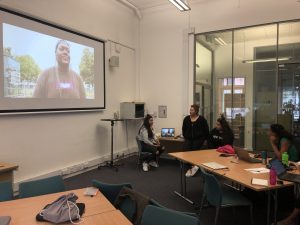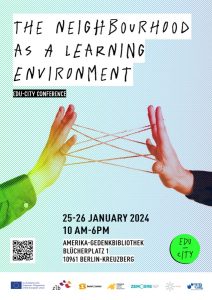Interdisciplinary Conference
14-15 September 2017
University of Bath
Faculty of Humanities and Social Sciences
Creative projects shape cities. They have the power to challenge negative connotations attached to disadvantaged neighbourhoods, transform the cityscape and residents’ lives for the better, and create opportunities for dialogue between various urban actors including artists, residents and decision makers. Artist-led projects can promote change, build capacity, broaden the range of available options for education and improve health conditions.
Yet, artists engaging in regeneration strategies can also become complicit in the production of urban inequalities. Art festivals and creative practices can contribute to spectacularise neighbourhoods and inadvertently become promoters of gentrification. In the last thirty to forty years, as cities have sought to redevelop urban centres and to some extent their peripheries, municipalities have often been seen to encourage artists to act as civic boosters that promote the staging of cities in order to attract visitors, tourists and private capital investment.
Arguing that social practices of art involving multiple partners in urban settings can avoid being hijacked, this workshop-conference seeks to explore how co-creation projects – which bring together residents, artists, researchers and other urban actors – can be used to address territorial stigmatisation. Our aim is twofold: we welcome both theoretical approaches conceptualising processes of co-creation and empirical examples that shed light on the role of artists as agents of urban destigmatisation. By co-creation, we understand processes involving artists, residents, academics and other local stakeholders resulting in the transformation of pockets of marginalisation in cities.
We propose a number of axes for theoretical reflection on co-creation as well as sharing of good practice, including, but not limited to:
- How can art interventions be used to build local capacity?
- How can pitfalls and negative side effects be avoided?
- How can different agendas be negotiated in multi-partner projects?
- How does co-creation relate to co-production of research?
- How can co-creation projects be adapted to educative or health-focused purposes?
- Can art and science work together in co-creation projects?
- How do different groups of people from marginalized communities experience regeneration strategies?
- What are the possibilities and limitations of co-creation methods in the context of urban stigmatization?
The conference will include a practice-based urban workshop in Bath using photo voice in the afternoon of 14th September 2017. The organisers will support the travel and accommodation of one early career researcher and one art-based practitioner selected on a competitive basis. We also encourage the participation of artists working in the Bath-Bristol area who are interested in being involved in our Paris- and Rio de Janeiro-based summer schools in 2018 and/or in our case study in 2019, testing the co-creation methodology that we are developing.
Please send abstracts to Dr Christina Horvath (christina.horvath@gmail.com). Abstracts should be prepared as a word document and include the following:
- Paper title
- 5 keywords
- Affiliated university and department or employer
- Contact information
- Abstract of 200-250 words
- 50-100 word biography
The deadline for receipt of abstracts is 30th April 2017.
Delegates will be notified about the decision of the scientific committee by 15th May 2017.
This conference is part of a four-year research project which has received funding from the European Union’s Horizon 2020 research and innovation programme under the Marie Skłodowska-Curie grant agreement No 734770. The project involves universities and NGOs in Europe, Mexico and Brazil. For information of the project, see: https://www.brookes.ac.uk/about-brookes/news/eu-funded-project-to-address-stigmatisation-in-disadvantaged-neighbourhoods/ and www.co-creation-network.org


